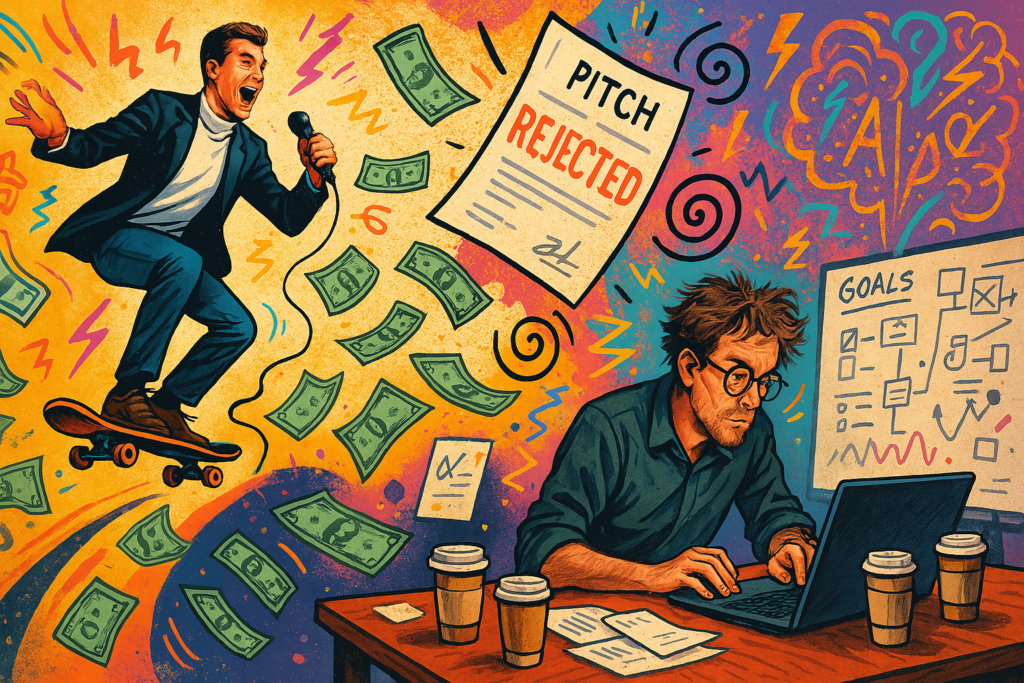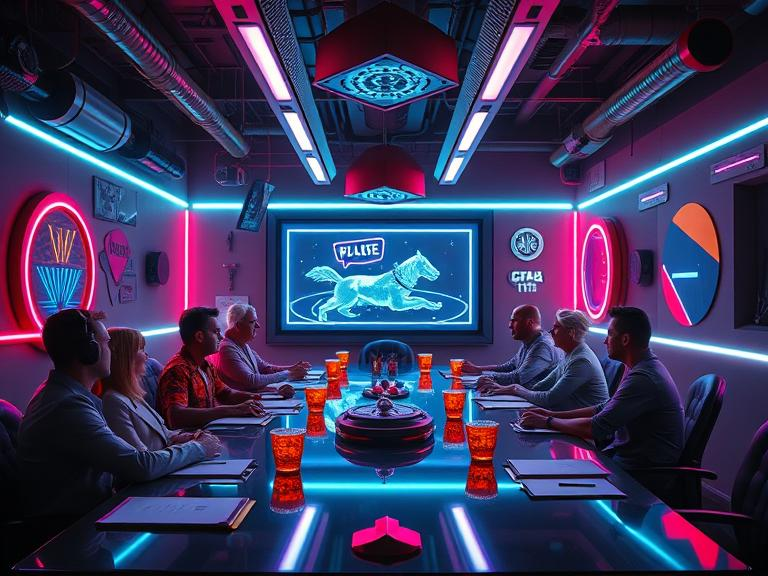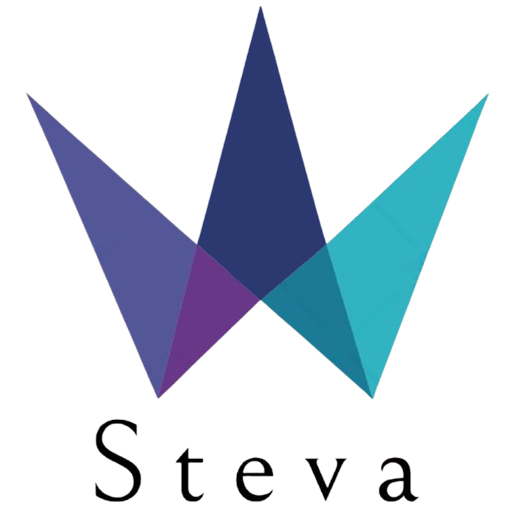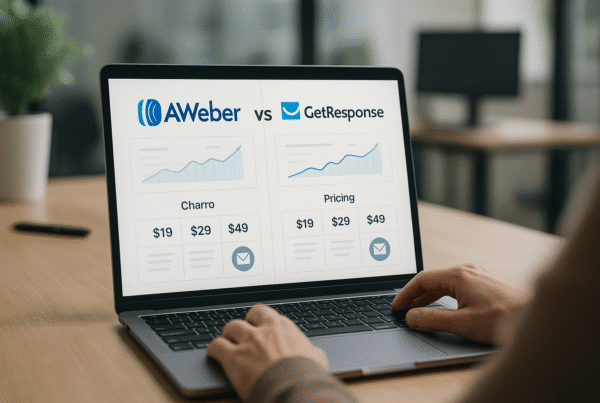Did you know that 90% of startups fail? Yeah, it’s like a statistical bloodbath out there. But here’s the plot twist: the 10% that survive often come from ideas so out there, even their founders probably thought, “This is either going to be brilliant or I’ll end up living in my mom’s basement again.” Case in point: Airbnb. Who in their right mind would think, “Hey, let’s rent out air mattresses in our living room and make millions?” Apparently, a few bold souls did, and now they’re swimming in money like Scrooge McDuck.
Now, let’s talk numbers, shall we? In 2025, global venture capital funding hit a mind-blowing $364.19 billion, but only 1% of startups ever become unicorns (that’s a fancy way of saying they’re worth over $1 billion, for those of you who didn’t spend all night on Shark Tank marathons). Yet, companies like Warby Parker, Dropbox, and SpaceX started with ideas so wild that even the founders probably had a moment of self-doubt and thought, “Uh, maybe I should just go back to being a barista.” Spoiler alert: it worked.
Fun fact: 72% of entrepreneurs start with less than $10,000. That’s less than the cost of a used Honda Civic. And yet, these so-called “crazy” founders manage to turn pocket change into multi-billion-dollar empires. How? By ignoring the naysayers, embracing the absurd, and, quite possibly, being a little bit insane.
So, if you’ve got a “stupid” idea that’s keeping you up at night, this article is for you. Because, as history shows, the wackiest ideas often make the best stories, and the fattest paychecks.
My Personal Story: The Crazy Journey of a Dreamer

Let me take you back to 2018. I was sitting in my tiny apartment, eating ramen for the third time that week, when I had this “brilliant” idea. What if I created a subscription box for… wait for it… exotic hot sauces? My friends laughed. My family said, “Get a real job.” Even my dog looked at me like I was nuts.
But I didn’t listen. I maxed out my credit card, bought a bunch of hot sauces, and started selling them online. Fast forward to 2025, and my little “crazy” idea is now a $200,000 business. Turns out, there are a lot of people out there who love getting their taste buds on fire. The moral of the story? If everyone thinks your idea is insane, you might be onto something.
5 Crazy Startup Stories That Defied the Odds

1. Warby Parker: Four Eyes, One Billion-Dollar Vision
In 2010, four business school friends, Dave Gilboa, Neil Blumenthal, Andrew Hunt, and Jeff Raider decided to take on an industry giant: Luxottica, the monopoly that controlled 80% of the eyewear market. They had an idea that seemed absurd to everyone: selling prescription glasses online.
Critics laughed. “People won’t buy glasses without trying them on!” they said. Investors were skeptical. But the founders ignored the doubts and launched Warby Parker with a mission to sell stylish, high-quality eyewear at a fraction of the cost.
Fast forward to 2025, and Warby Parker is worth $1.8 billion. The company disrupted the eyewear industry, and despite the criticism, it became one of the most successful startups in recent history.
Sometimes, the wildest ideas are the best solutions to everyday problems. If everyone tells you your idea is crazy, you might be onto something huge.
2. Dropbox: From Lost USB to $2.5 Billion Empire
In 2007, Drew Houston, a techie at MIT, kept forgetting his USB drive. We’ve all been there, right? But instead of just cursing under his breath and going on with his life, Drew did something that most people would think was… well, crazy. He created Dropbox, a cloud storage solution that would allow people to store and access files from anywhere, at any time.
Critics scoffed. “Why would anyone need another file storage service? Google already has Drive, and Apple’s iCloud exists,” they said. Investors laughed in his face, telling him, “There’s no way this will work. Who’s going to trust their files online?”
Fast forward to today, and Dropbox is worth over $2.5 billion in annual revenue, with 700 million users worldwide. Forgetfulness? Turns out, it’s the best business model.
If you ever forget something important, don’t just shrug it off, build an empire from it. Because sometimes, the most seemingly ridiculous problem can lead to the biggest breakthrough.
3. Twitter: 140 Characters, $44 Billion Valuation
In 2006, Jack Dorsey pitched an idea so simple, yet so absurd, it was a platform where you could share 140-character status updates. That’s it. Critics rolled their eyes and called it trivial. “Who wants to read about what someone had for breakfast or their random thoughts?” they scoffed. Investors were not impressed.
Fast forward to 2022, and Elon Musk came in, buying Twitter for a jaw-dropping $44 billion. People all over the world are still tweeting their hearts out, sharing every thought, idea, and even bad pun.
The next time someone tells you your idea is “pointless,” remember, Twitter was just 140 characters. And now, it’s worth more than some entire countries. Turns out, oversharing can be very, very profitable.
4. Airbnb: From Air Mattresses to Global Dominance
In 2007, Brian Chesky and Joe Gebbia were struggling to pay rent in San Francisco. So, what did they do? They rented out air mattresses in their living room to conference attendees who couldn’t find a hotel room. Investors laughed, calling it a ridiculous idea. “Who would ever want to stay in a stranger’s home, let alone sleep on an air mattress?” they scoffed.
Fast forward to 2023, and Airbnb is a multi-billion-dollar business, bringing in $8 billion in revenue. It has changed the way people travel and find lodging, all because two guys had a need and turned it into a wild idea.
Sometimes, when you’re backed into a corner, the best ideas come from desperation. Who knew air mattresses would be the first step to a billion-dollar empire?
5. SpaceX: From Failures to $3 Billion Profit
In 2002, Elon Musk set out to colonize Mars. That’s right, his first goal was not just to launch rockets but to build a private space company that would make space travel more affordable and pave the way for humans to live on Mars. Critics laughed. Experts said it was impossible. The technology didn’t exist, and Musk had no aerospace experience.
Fast forward to 2023, and SpaceX is a powerhouse, with a $3 billion operating profit. They’ve revolutionized the space industry with reusable rockets, sent astronauts to the International Space Station, and are on track to make space tourism a reality.
Shoot for the stars, literally. Even if everyone thinks you’re crazy, keep aiming high. Because sometimes the only thing standing between you and success is a whole lot of failed rockets.
Successful Founders Are Usually Crazy

Normal people don’t start companies. They don’t risk their last dollar, work until they’re running on fumes, or laugh in the face of failure. But successful founders? They’re wired differently. They see a world of possibilities where others see roadblocks. They don’t just break the rules; they throw them out the window and make up their own.
It’s no surprise that 60% of entrepreneurs have ADHD, according to a 2022 study. Coincidence? Nope. It takes a level of pure insanity to ignore the odds and keep charging forward when everyone else says you’re doomed. So, what makes successful entrepreneurs tick? Here are 5 shocking traits that they all share:
1. Unfiltered Confidence
They believe in their idea, even when everyone else thinks it’s a joke. Steve Jobs famously wore a turtleneck and jeans while creating the most valuable company in the world. Talk about bold.
2. Complete Absurdity
Most successful entrepreneurs start with an idea so ridiculous that even their friends and family think they’re insane. Airbnb’s founders started by renting out air mattresses for crying out loud.
3. Rejection Fuels Them
Most people would crumble after hearing “no” a hundred times. Not entrepreneurs. They get stronger, more determined, and more passionate with each rejection.
4. Risk Addiction
They don’t just embrace risk, they actively seek it out. Starting a business means putting everything on the line. They’re willing to bet the farm, the car, and maybe even their pet iguana on an idea.
5. Relentless Persistence
They don’t quit. Ever. Musk’s SpaceX failed multiple times before landing their first rocket, and Warby Parker’s founders faced constant rejection before hitting it big. Failure? Just another stepping stone.
So, if you think you’re “normal,” good luck running a business. Successful entrepreneurs don’t follow the crowd, they lead it, one risky, insane, “stupid” idea at a time.
Crazy Startup Ideas That Could Be the Next Big Thing

1. Edible Coffee Cups: Why waste paper when you can eat your cup?
In 2022, global coffee consumption reached 166.63 million 60-kilogram bags. If just 1% of coffee drinkers switched to edible cups, that could eliminate 1.67 million tons of paper waste every year, talk about a sustainable revolution! Plus, 80% of millennials are willing to pay more for eco-friendly products. The future of coffee? Crunch it instead of throwing it!
2. AI-Powered Pet Translators: Find out what your dog is really thinking
The global pet industry is projected to hit $30.2 billion by 2026. With 70% of pet owners claiming their pets understand them better than people do, an AI pet translator could become a must-have. Imagine unlocking the mystery of that wagging tail! Bonus: Pet tech is growing at a staggering 20% annually, so this could be the next big boom.
3. Virtual Reality Gyms: Work out in the comfort of your living room or on Mars.
The virtual reality fitness market is expected to hit $9.3 billion by 2027, growing at a rate of 35% annually. Over 30% of gym-goers have abandoned traditional gyms, and VR workouts are expected to attract 20% of those looking for something more immersive. Want to sweat it out in space? The future of fitness is virtual.
4. Subscription-Based Gardening Kits: The Plant Parent Lifesaver
In 2023, the global gardening market was valued at $55.1 billion, and over 35% of millennials identify as plant parents. However, 75% of them admit they struggle to keep their plants alive. A subscription-based gardening kit with easy-to-follow instructions could tap into this growing market. With 1 in 4 people now interested in growing their own food, this idea could plant the seeds for a thriving business!
5. Time-Banking Apps: Trade Time for Services
The time banking market is projected to grow by 25% by 2026, with 60% of people looking for alternatives to traditional bartering. With 74% of people reporting that they wish they had more time, exchanging your time for services could soon become the most valuable currency. The gig economy has already exploded,Time banking might be the next big shift.
These wild ideas are backed by stats that show there’s a hungry market just waiting for the next game-changing product. Time to make these crazy ideas your reality.
Why Failure Is Your Best Friend
95% of startups fail within the first five years. But here’s the thing: failure isn’t the end, it’s a stepping stone. Every successful founder has a graveyard of failed ideas. The key is to learn, adapt, and keep going.
The Power of Persistence: Stories That Inspire
Take Sara Blakely, the founder of Spanx. She was rejected by every manufacturer she approached. But she kept going, and in 2023, Spanx is worth $1.2 billion. Or consider Howard Schultz, who was turned down by 242 investors before Starbucks became a global empire.
How to Turn Your Crazy Idea Into Reality
- Start Small: You don’t need a million dollars, just a prototype and a dream.
- Ignore the Haters: If everyone loves your idea, it’s probably not innovative enough.
- Embrace Failure: Every “no” brings you closer to a “yes.”
Final Thoughts: Be Crazy, Be Bold, Be Unstoppable
The world doesn’t need more safe ideas. It needs more crazy startup stories that turn the impossible into reality. So, if you’ve got a “stupid” idea that keeps you up at night, go for it. Because, as startup success stories prove, the craziest ideas often make the best stories, and the biggest paychecks. Don’t be afraid to take risks and think outside the box. Go out there and be gloriously, unapologetically insane. The world is waiting for your next big idea.





